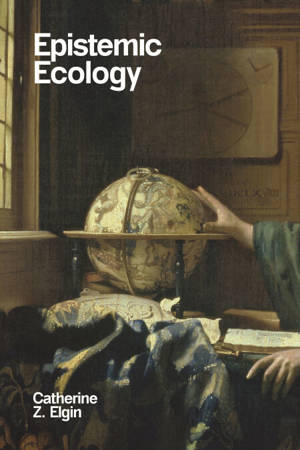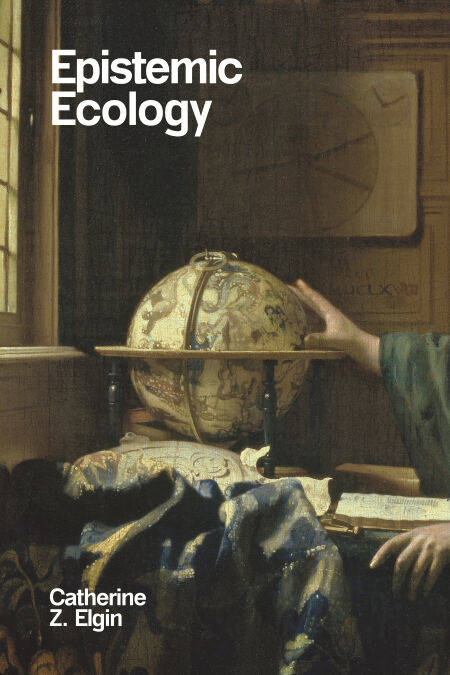
- Afhalen na 1 uur in een winkel met voorraad
- Gratis thuislevering in België vanaf € 30
- Ruim aanbod met 7 miljoen producten
- Afhalen na 1 uur in een winkel met voorraad
- Gratis thuislevering in België vanaf € 30
- Ruim aanbod met 7 miljoen producten
Zoeken
Omschrijving
An ecological epistemology arguing that epistemic agents, communities, and environments adapt to one another to generate evolving understandings of the world.
Mainstream epistemology focuses on static states. In Epistemic Ecology, Catherine Elgin adopts a dynamic stance, viewing epistemic subjects as agents rather than onlookers. She examines how, individually and collectively, we construct our epistemic practices, policies, principles, and procedures to overcome our limitations, exploit our assets, and correct our mistakes. Taking an ecological approach, she shows how human organisms and their social and natural environments mutually adjust to accommodate each other. Elgin’s ecological model of understanding reveals that epistemic agents and communities are interdependent and are more deeply implicated in the individuation and characterization of the phenomena they access than standard spectatorial approaches to epistemology assume.
Elgin maintains that a commitment’s epistemic acceptability turns in large part on its providing resources for further epistemic advancement. Epistemic progress is an iterative process that corrects, refines, and extends current understanding. Epistemic subjects are agents, not mere observers, and the positions they accept are springboards for improvement rather than windows into the world. Responsible disagreement is an asset because it has the potential to identify and correct shortfalls in the views that are currently accepted. Rather than treat epistemic success—knowledge, understanding, wisdom—as fixed and final, Elgin views success as a stable platform on which to build. How, she asks, should we leverage our findings to move beyond them? Her holistic conception of understanding is integral to education.
Mainstream epistemology focuses on static states. In Epistemic Ecology, Catherine Elgin adopts a dynamic stance, viewing epistemic subjects as agents rather than onlookers. She examines how, individually and collectively, we construct our epistemic practices, policies, principles, and procedures to overcome our limitations, exploit our assets, and correct our mistakes. Taking an ecological approach, she shows how human organisms and their social and natural environments mutually adjust to accommodate each other. Elgin’s ecological model of understanding reveals that epistemic agents and communities are interdependent and are more deeply implicated in the individuation and characterization of the phenomena they access than standard spectatorial approaches to epistemology assume.
Elgin maintains that a commitment’s epistemic acceptability turns in large part on its providing resources for further epistemic advancement. Epistemic progress is an iterative process that corrects, refines, and extends current understanding. Epistemic subjects are agents, not mere observers, and the positions they accept are springboards for improvement rather than windows into the world. Responsible disagreement is an asset because it has the potential to identify and correct shortfalls in the views that are currently accepted. Rather than treat epistemic success—knowledge, understanding, wisdom—as fixed and final, Elgin views success as a stable platform on which to build. How, she asks, should we leverage our findings to move beyond them? Her holistic conception of understanding is integral to education.
Specificaties
Betrokkenen
- Auteur(s):
- Uitgeverij:
Inhoud
- Aantal bladzijden:
- 344
- Taal:
- Engels
Eigenschappen
- Productcode (EAN):
- 9780262382403
- Verschijningsdatum:
- 19/05/2025
- Uitvoering:
- E-book
- Beveiligd met:
- Adobe DRM
- Formaat:
- ePub

Alleen bij Standaard Boekhandel
+ 64 punten op je klantenkaart van Standaard Boekhandel
Beoordelingen
We publiceren alleen reviews die voldoen aan de voorwaarden voor reviews. Bekijk onze voorwaarden voor reviews.








